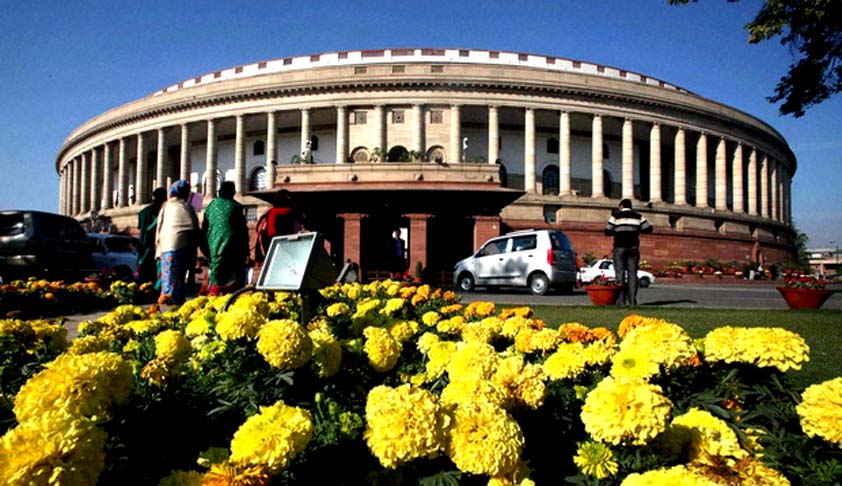Prevention of Corruption (Amendment) Bill, 2013 (As presented in Rajya Sabha – Salient Features)
Balaji.L
20 July 2018 10:39 AM IST

The Rajya Sabha on 19th July 2018 passed a Bill seeking to amend the various provisions of Prevention of Corruption Act, 1988 (“PC Act, 1988”).
The Bill which was originally proposed during 2013 was then referred to a Select Committee of Rajya Sabha, which submitted its report on August 12, 2016.
Major changes suggested in the PC Act, 1988 as reported by the Rajya Sabha Select Committee, 2016 include:
- Giving a bribe as punishable offence: The Bill introduces the offence of ‘giving a bribe’ as a direct offence. However, a person who is compelled to give a bribe will not be charged with the offence if he reports the matter to law enforcement authorities within seven days.
- Redefining the Criminal misconduct: The Bill redefines the provisions related to criminal misconduct to only cover two types of offences: (i) fraudulent misappropriation of property; and (ii) illicit enrichment (such as amassing of assets disproportionate to one’s known sources of income).
- Prior approval for investigation alleged to have been committed by a Public Servant: Before a police officer conducts any investigation into an offence alleged to have been committed by a public servant, prior approval of the relevant government or competent authority should be taken. Such approval would not be necessary in cases which involves the arrest of a person on the spot on the charge of taking a bribe.
- Time limit for trial of cases: As per the Bill, trial by special judge should be completed within two years. If not, reasons for the delay must be recorded, for every six months of extension of time obtained. However, the total period for completion of trial may not exceed four years.
This note examines the provisions of the 2013 Bill as reported by the Rajya Sabha Select Committee, 2016, in detail and presents some issues for consideration:
Salient Features of the Bill in a Nutshell (Section-wise)
- Definition of “undue advantage” – Section 2(d) inserted through official amendments.
- Laying down timeline for speedy trials of corruption cases – Section 4(5) inserted through official amendments.
- Restructuring all provisions of acceptance of bribe by a public servant under single Section – Section 7 substituted by official amendments.
- Criminalization of the act of giving of bribe – Section 8 substituted by official amendments.
- Criminal liability for commercial organisations for bribing public servant.
- Section 9 [Rule making power provided under new Section 32] substituted by official amendments.
- Liability of senior management of commercial entity in case of consent or connivance – Section 10 substituted by official amendments.
- Intentional enriching and possession of disproportionate assets proof of such illicit enrichment. – Section 13 amended by the Bill.
- Sanction for initiating investigation against a public servant to be granted by Lokpal or Lokayukta - Section 17A inserted by official amendments.
- Attachment and forfeiture of property – Insertion of new Section 18A by the Bill and subsequent official amendments.
- Extending protection of prior sanction of the Competent Authority of appropriate Government to retired government servant and providing for timeline for granting sanction by that Competent Authority – Section 19 to be amended by the Bill.
Comparative Analysis of Provisions of PC Act, 1988 and Proposed Amendments
The Author is Law Officer with SBI. The views are author's own and do not necessarily represent the views of the organization he belongs.








